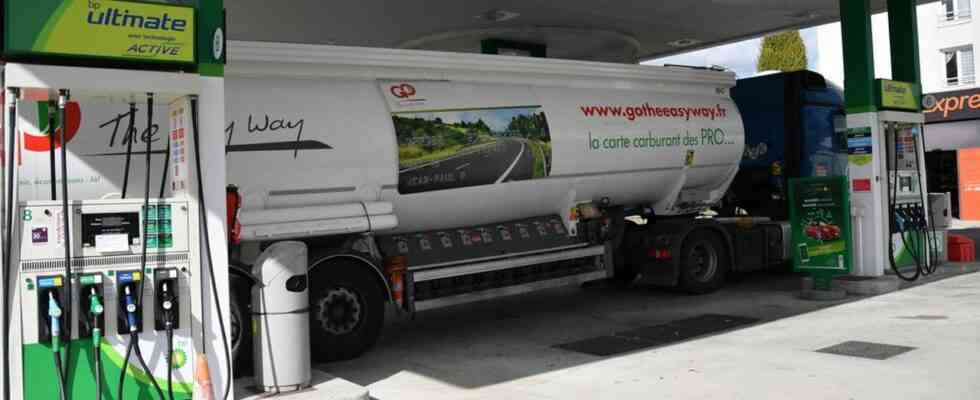Posted Oct 21, 2022, 5:20 PMUpdated on Oct 21, 2022 at 5:57 PM
The departures on All Saints’ Day holidays for the French are safe, but the return to normal in the distribution of fuel will still take some time. In the opinion of professionals, who are overwhelmed by the orders of the 10,500 service stations in France, including 5,100 managed by large retailers, the restart diesel and gasoline circuits is not an easy task .
On Friday, the Ministry of Ecological Transition nevertheless wanted to be reassuring, highlighting a few initiatives. “The service stations on the motorways and the busiest national roads within the framework of departures on vacation will be served in priority”, as the contracts of the stations on the motorway stipulate by construction. Elsewhere, “tank trucks from the operational energy department of the Ministry of the Armed Forces will be mobilized to relieve the logistical systems in the most tense areas”, promises the ministry, without advancing on the number of divisions that can be mobilized. Finally, to avoid running out of fuel on long journeys, the State has asked the prefects to put an end to rationing at service stations (30 liters per car maximum), which it has itself recommended.
Extended driving times
To complete the accelerated supply of the country, while several strike notices in refineries or depots have recently been lifted the Ministry of Transport issued two decrees on Thursday: one to once again lift the restrictions on the circulation of tanker trucks at the weekend, and the other to authorize temporary derogations from the rules on driving times for drivers , until October 23.
However, the machine cannot restart in the blink of an eye. In terms of tank trucks, “there is not a vehicle that is not circulating, all available transport capacities, vehicles or drivers, are optimal”, describes Jean-Marc Rivera, General Delegate of OTRE ( Organization of European Road Hauliers). But many obstacles exist, such as going to dip into the strategic stocks of the State, which supposes a lengthening of travel times. Or else queue for long hours in the park of the 200 open depots. The drivers thus work much longer days than usual, but still find it difficult to honor all the daily orders.
Professional accreditations
“We are in an ascending part, but the situation is not back to normal , you have to give time to time”, summarizes Jean-Marc Rivera. There are several reasons for this: firstly, hydrocarbon drivers have very specific authorizations and training (ADR), as for chemical products, and therefore cannot be replaced by other colleagues at short notice, even when the demand is exploding and more rounds than usual have to be made.
Then, transport companies, often SMEs or ETIs (like Premat, the Mertz group or Charles André at the higher level) sometimes have a regional scope of action, hardly more. “Some only have 5 or 10 vehicles,” according to an expert. If a road tractor can pull everything on the road (diesel tank, milk tank or even a dumpster of aggregates or beets), the towed tanks suitable for hydrocarbons are by definition limited in these multi-card SMEs.
Reinforcement pipelines
Moreover, at a time when all customers are in demand, and when their shipping services are overwhelmed with calls, carriers are forced to establish priority lists, placing customers on annual contracts at the top, and then passing “spot” buyers, by definition less loyal.
Luckily, France has a network of several pipelines, which significantly shorten road distances between refineries and consumer basins fuel (Haute-Normandie-Paris region, Greater Lyon to the surroundings of Geneva, or Fos-sur Mer to the entire Paca region). But you still need a slew of trucks on arrival to deliver to the final distributors.

